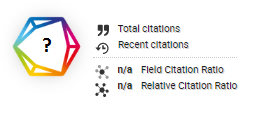Employee Watchlist as an Effort to Prevent Fraud in Banking in Indonesia
DOI:
https://doi.org/10.46984/sebatik.v29i1.2599Keywords:
Employee Watchlist, Fraud Triangle Theory, Know Your Employee, PreventionAbstract
This study aims to develop a data-based Employee Watchlist system as a fraud prevention strategy in the banking sector in Indonesia. This study is based on the Fraud Triangle Theory, focusing on two main elements, namely motivation and opportunity, and strengthening the implementation of the Know Your Employee (KYE) strategy as regulated in POJK No. 12 of 2024 concerning Anti-Fraud Strategy. The method used is a case study with a descriptive-quantitative approach at Bank ABC. The data analyzed includes internal employee indicators such as Debt Service Ratio (DSR), leave patterns, and length of service in one position. The results of the study indicate that employees with DSR> 70%, do not take block leave, and hold the same position for more than two years have a high risk of fraud. This study supports the preparation of an Employee Watchlist system that is integrated with individual risk indicators predictively. This study also contributes to designing data-based supervision of employee behavior as part of the transformation of human resource risk management in the financial sector.
References
Anand, A., Shah, N., & Hussain, M. (2020). Deliberation of Fraud Triangle Theory: A Comparison Among Public and Private Commercial Banks of Sindh, Pakistan. International Journal of Academic Research in Accounting, Finance and Management Sciences, 10(1), 1–9.
Andriani, D., Syarif, Indrijawati, A. & Syamsudi. (2020). Fungsi Internal Kontrol dalam Pencegahan Fraud di PT Bank Mandiri (Persero) Tbk. Regional X Makassar. Ajar. 3 (2): 176 – 187.
Association of Certified Fraud Examiners. (2019). Survei Fraud Indonesia 2019. ACFE Indonesia Chapter, 76.
Association of Certified Fraud Examiners (ACFE). (2020). Behavioral Red Flags of Fraud. Retrieved from https://legacy.acfe.com/report-to-the-nations/2020/docs/infographic-pdfs/Behavioral%20Red%20Flags%20of%20Fraud.pdf
Association of Certified Fraud Examiners. (2024). Occupational Fraud 2024: A Report to the Nations. https://www.acfe.com/report-to-the-nations/2024.
Asmara, F. T., Riduwan, A. & Priyadi, M. P. (2020). Kebijakan dan Implementasi Strategi Anti-Fraud pada Bank Umum. InFestasi, 16(2), 135 – 147.
Fatoni, M. (2016). Analisis Faktor-Faktor Penyebab Fraud pada BadanUsaha Milik Daerah (Studi di Perusahaan Daerah Bank Perkreditan Rakyat Bank Daerah X). Jurnal Riset Manajemen, 3(2), 97 – 119.
Meliana & Hartono, T. R. (2019). Fraud Perbankan Indonesia: Studi Eksporasi. Prosiding Seminar Nasional Pakar ke 2 Tahun 2019.
Nurhayati, I., & Aminah, S. (2024). Prinsip Know Your Employee Sebagai Upaya Fraud pada Perbankan Indonesia. Epigram, 11(2), 167–172.
Peraturan Otoritas Jasa Keuangan Nomor 12/POJK.03/2024 tentang Strategi Anti-Fraud bagi Lembaga Jasa Keuangan.
Peraturan Pemerintah Nomor 60 Tahun 2008 Tentang Sistem Pengendalian Intern Pemerintah.
Prasetyo, D. E., Wulandari, G. A. A., Meini, Z. & Fauzia. (2024). Idenfikasi Fraud dalam Pemeriksaan Internal melalui Data Analytics. Equity. 26 (1). 78-98.
Rahman, K., Anggraeni, R. & Febriana, D. (2022). Fraud Triangle Mendeteksi Kecurangan dalam Laporan Keuangan Dana Desa. Jurnal Akuntansi dan Keuangan Kontemporer. 5 (2): 95-100.
Rahmawati, R. (2018). Mengungkapkan Kecurangan (Fraud) Pembiayaan Kredit pada PT. Bank Central Asia. TBK KCU Panakkukang. Jurnal Bisnis dan Kewirausahaan. 7 (3): 235 – 243.
Sa’adah, S. & Mustofa. (2024). Fraud pada PT BTPN Syariah di Inonesia. Jurnal Ilmiah Ekonomi Islam. 10(1): 895-902.
Suharto. (2020). The Effect of Organization Culture, Leadership Style, Whistleblowing Systems, And Know Your Employee On Fraud Prevention In Sharia Banking. Asia Pacific Fraud Journal. 5 (1). 108 – 117.
Supriadi, D. & Wahyuni, E. (2018). Pengaruh Good Corporate Governance dan Know Your Employee terhadap Pencegahan Fraud pada Perbankan. Jurnal Ilmu dan Riset Akuntansi, 7 (4).
Downloads
Published
How to Cite
Issue
Section
License
Copyright (c) 2025 Adirama Chrisna Putra, Umianty Hamzani, Muhammad Fahmi, Syarif M Helmi, Nina Febriana Dosinta

This work is licensed under a Creative Commons Attribution 4.0 International License.
Authors retain all their rights to the published works, such as (but not limited to) the following rights; Copyright and other proprietary rights relating to the article, such as patent rights, The right to use the substance of the article in own future works, including lectures and books, The right to reproduce the article for own purposes, The right to self-archive the article








